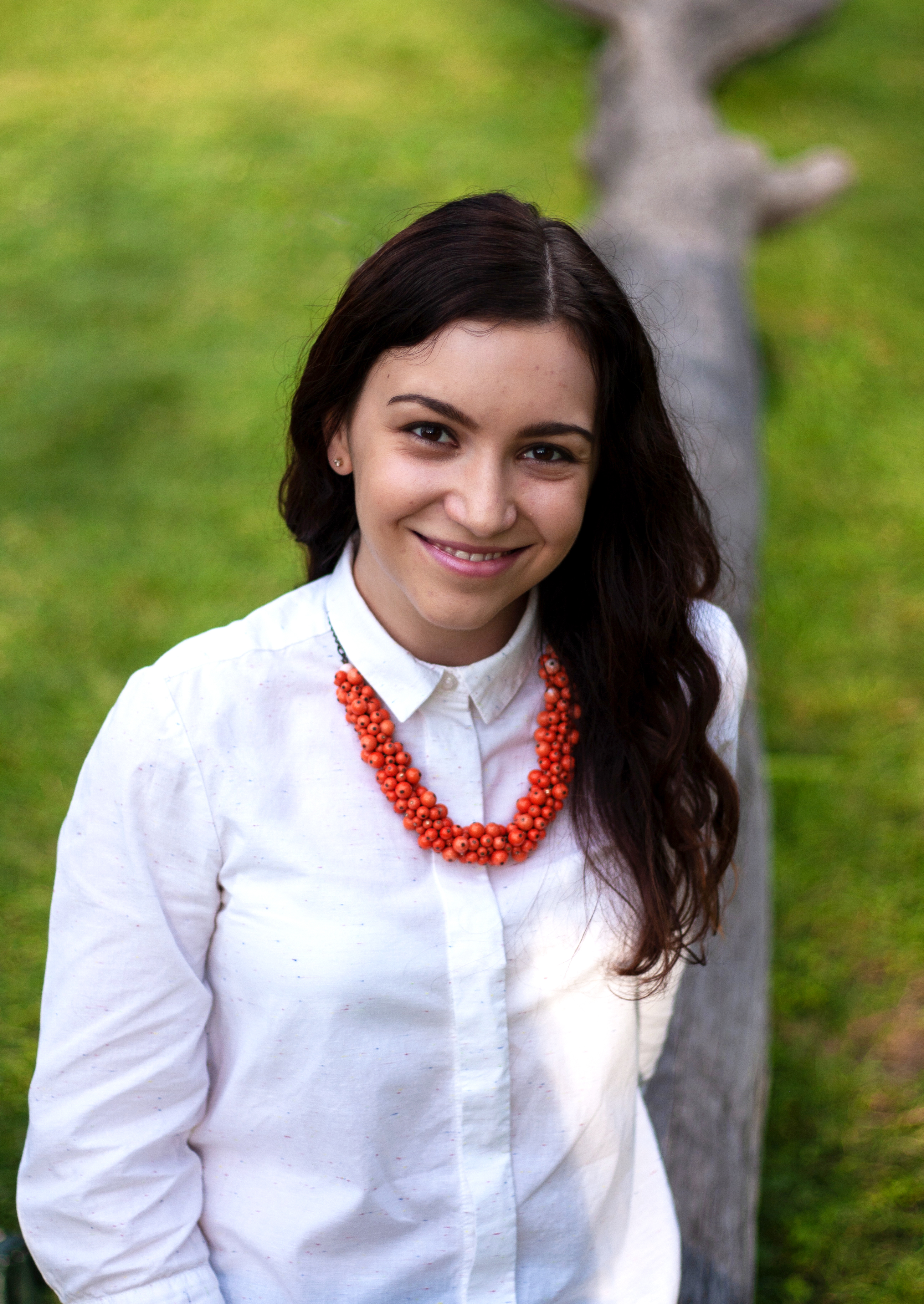Double Degree - two birds with one stone
In conversation with Elizabeth Lensmith
Elizabeth Lensmith is currently doing the third semester of her master's degree at the School of Life Sciences. With this additional semester, she will receive a degree from the FHNW in addition to the one from the University of Chemistry and Technology Prague (UCT).
Elizabeth had already studied abroad with Erasmus and she wanted to repeat this experience. The Double Degree Program between the University of Chemistry and Technology in Prague (UCT) and the School of Life Sciences FHNW was a perfect fit. The opportunity to expand her drug manufacturing skills in the heartland of the pharmaceutical industry, in a different learning environment and culture, to break out of her comfort zone and meet new students and lecturers was motivation enough to add an extra semester. "I believe that once a student really wants to be engaged in the Double Degree program, he or she does not mind the extra time," says Elizabeth. "You have to give up some things, including the familiarity of your university, campus and professors, home comforts, etc., but I am sure you receive way more."
Elizabeth Lensmith is convinced that her stay abroad will put her at a great advantage in the job market. She has developed some key skills: independence, responsibility, adapting to new situations and tackling challenges in a variety of scientific groups.
Read the full interview with Elizabeth Lensmith.
By spending an additional semester at one of our partner universities, selected students on our Life Sciences MSc can receive two diplomas. The combination of two degrees is particularly interesting for students hoping to do a PhD. At present there are agreements with the University of Chemistry and Technology in Prague (pharmaceutical technology, chemistry and bioanalytics) and Linköping University in Sweden (chemistry).
Elizabeth, what made you apply for the double degree?
Having had the experience of studying abroad on the Erasmus study program last year I was certain I would like to have the opportunity to study in a foreign country again. In fact, I heard about the Double Degree program a long time ago and ever since have wished to come to the FHNW and study here.
I believe the Double Degree program will help me broaden my skills in the field of drug manufacturing in the mecca of pharma companies, experience a different learning environment in a different culture, step out of my comfort zone and challenge myself, improve my English, possibly learn a new language and meet new people and teachers. Gaining an extra degree next to the one awarded by my alma mater, the University of Chemistry and Technology Prague is a very pleasant and motivating extra benefit.
What advantages do you think you will gain by getting two diplomas from two different schools?
I am convinced it is a huge advantage to present work or study experience gained abroad in your CV. When applying for a good job, this information can tell your potential future employer that you are capable of being autonomous, that you are independent and responsible for yourself, that you welcome challenges and can adjust to a new working environment, and that you can handle assignments in diverse scientific communities.
Some students cannot wait to be done with their master’s. They wouldn’t want to prolong their studies with an additional semester. What is your reaction to that?
I believe that once a student really wants to be engaged in the DD program, he or she does not mind the extra time. Moreover, one extra semester does not make such a difference. I know it myself: you have to give up some things, including the familiarity of your university, campus and professors, home comforts, etc., but I am sure you receive way more. Therefore, it is definitely worth it. In addition, when should a young person study and use the energy to cope with new challenges in an unknown environment if not when studying at universities such as UCT Prague or FHNW, which support and encourage student development and exchange programs?
Why Switzerland? Why the FHNW?
As a Drug Manufacturing student, I was looking for a similar program taught in English and a contract supported by my home university. UCT Prague and the FHNW have been cooperating for about three years; therefore, I could speak with the students who had studied at the FHNW about their opinion and experience of Muttenz. All the answers I received were positive and convincing so it was easy to decide to apply for the DD program.
Can you already say something about the differences between your home university and the FHNW?
I have to laugh now. I still cannot get why students applaud their professors at the end of the lecture by knocking their fists on the desk. To me, this seems rather rude. At Czech universities, students either clap their hands or just stay quiet.
If you had to promote your home university, what aspects would you highlight? What are some of the things that you really like about UCT?
UCT campus is located only in Dejvice, a Prague district where you can find all three university buildings, thus you do not have to travel for different lectures like in Switzerland, where students have to go to different towns to attend classes.
My favorite place on Prague’s campus is probably the state-of-the-art National Technical Library building where students from the whole city come to study. You can even book a study room for yourself there. I should also mention that visitors are allowed to eat and drink inside the library. A truly student-friendly environment, right?
The UCT has been very supportive when it comes to student leisure activities and has backed the foundation of innumerable student clubs and organizations, for example, sports, board games, orchestra and choir, theater, Balling’s Brewery, UNI-Art, etc. With UNI-Art, you can present your unpublished poems, while if you are a yoga fan, you can stretch your body and calm your mind at school too! Some of the events are joined by teachers as well.
Next to fun facts, it is important to say the UCT has been involved in numerous high-level research projects and has provided excellent professors among whom we find some of the most cited in the world!
In conclusion, what I really like about my home university is its family-like environment. Being a student there means that you belong; attending lectures and seminars and doing lab work is more than being buried in presentation slides and books.
What about Prague? What do you really like about the city?
I would say it’s the combination of modern and ancient. Renovated red roofs, towers and modern glass constructions. Parks. Historical sites such as Prague Castle or the Astronomical Clock in the old town. Prague’s role in the history of the country. And last but not least, the infinite list of cafes – either classic or hipster-style - and pubs with proper Czech beer on tap.
I mustn’t forget to mention the advantage of Prague’s location: in central Europe, with an international airport and internationally connected railways, it attracts businesspeople and professionals from all over the world. Prague serves as both a convenient meeting venue and a link to other important cities.

